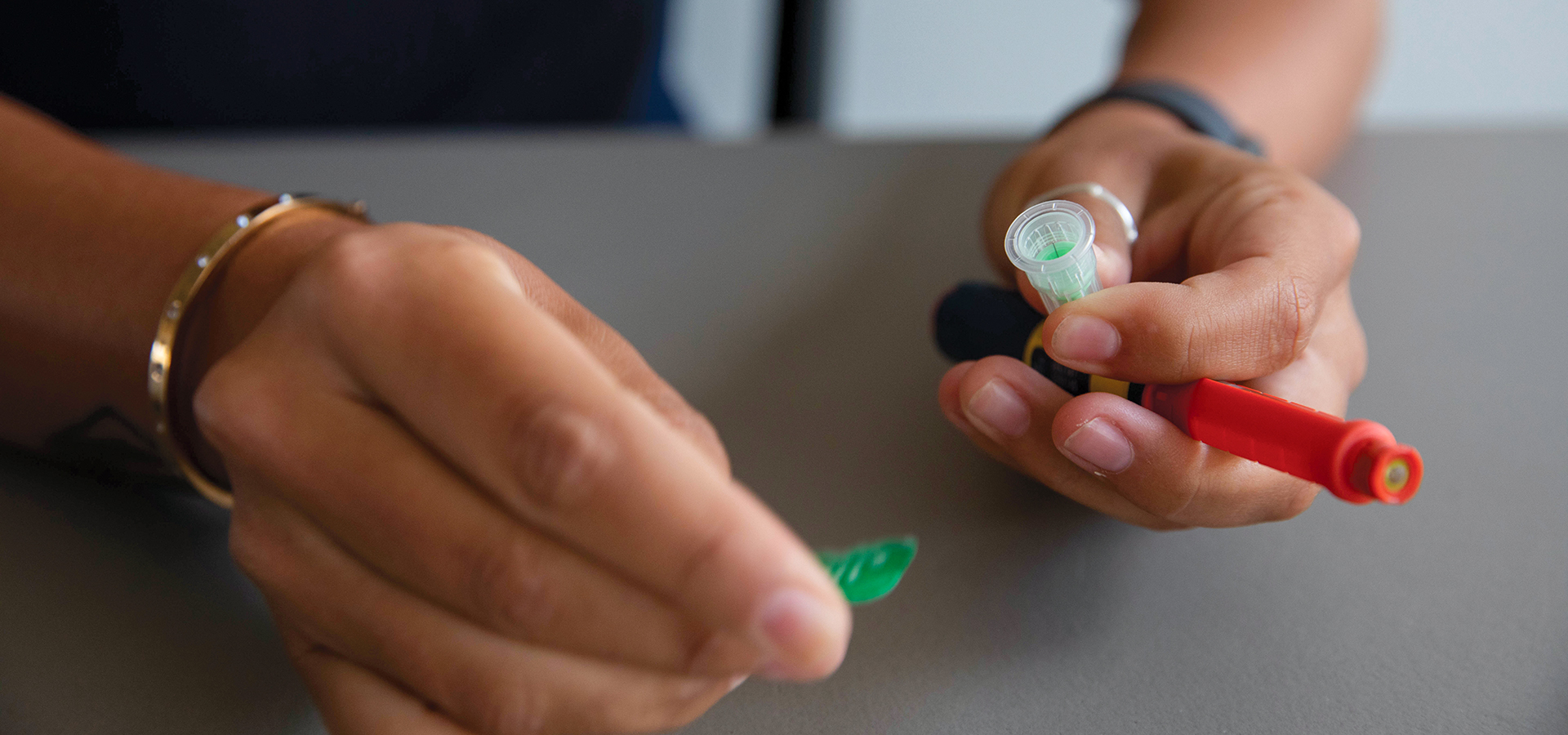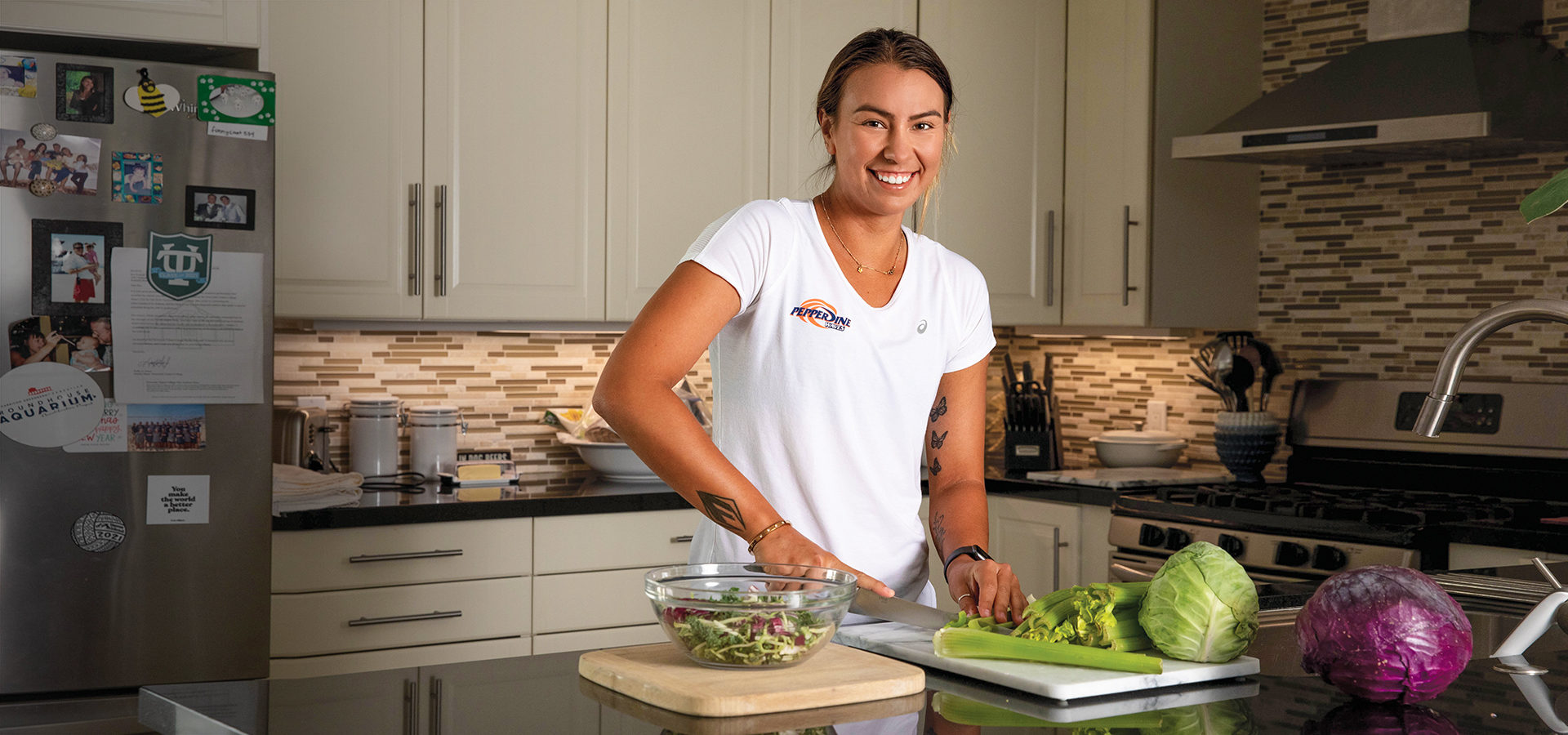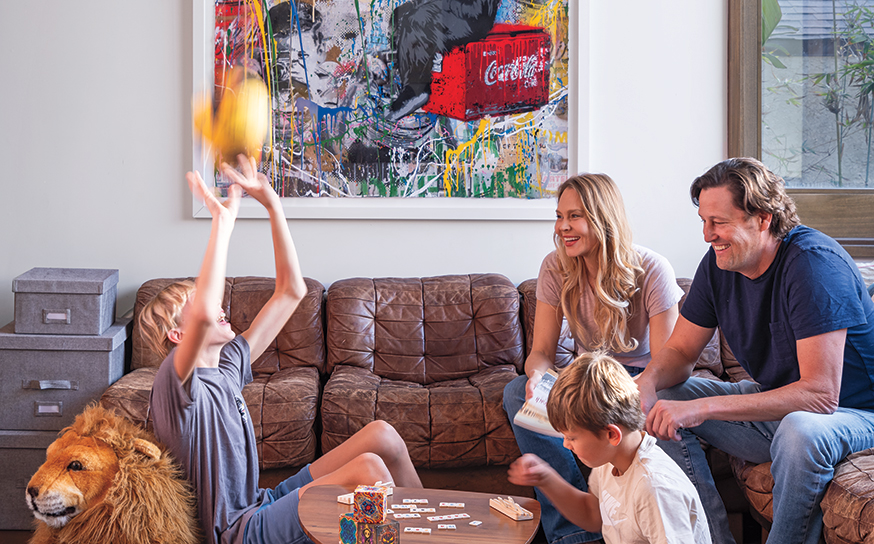Redondo Beach’s Rio Frohoff was named after the popular ’80s hit song “Rio” by Duran Duran. At age 22, she is still dancing on the sand as a Division 1 beach volleyball graduate transfer student to Pepperdine University after playing four years at Tulane University in New Orleans. She received an extra year of eligibility due to an unfinished season caused by the pandemic.

Yet when Rio prepares to play in a tournament, she must pack more than a volleyball and her beach towel. Diagnosed as a diabetic at the age of 9, her bag must include insulin in case her glucose levels spike. She also wears a Dexcom—a monitor attached to her skin that tracks her blood sugar throughout the day. Ignoring these readings could be a life-or-death situation for the young athlete. Rio shines as an admirable example of how to successfully manage diabetes while also achieving athletic dreams.
Athleticism and competitiveness run deep in her blood. Coming up through the ranks, her fiery spirit was often compared to her uncle, former professional beach volleyball player Brent Frohoff. Brent was a mainstay on the Association of Beach Volleyball professional tour, while Rio’s dad, Chris Frohoff, was traveling the world as a professional surfer.
“I have to go into matches with a higher sugar level because I can’t be checking my blood throughout the match. It can spike high or drop low while I am playing.”
As a defender on a two-person team, when Rio is playing she dives in any direction she needs to in order to keep the ball from dropping on the sand. She treats every play like a championship point, and her movement can resemble an athletic dance on the sand.
Rio does not live with regrets, but she says there have been “times when I get a little too emotionally involved in a game and go overboard cheering. I’ve had to apologize many times to opponents because I let the heat of the moment get the best of me, but most of the time we all have a laugh about it later.”
Born with the autoimmune disease, Rio notes that diabetes expressed itself over time. Before her diagnosis, she was emotional, extremely skinny and struggled with increased thirst and constant urination. Quick to notice the symptoms, her father, a Los Angeles County emergency medical technician, and her mom, Ann Marie, were able to prevent Rio from destabilizing and spending an extended stay in the hospital.
Type 1 diabetes, once referred to as juvenile diabetes, is a chronic condition characterized by high blood sugar, or glucose. “If I could take it from her and live with it instead, I would in a heartbeat,” shares Ann Marie.

This chronic disease can lead to many serious complications if not properly managed. Rio has learned to optimize her glucose control, which involves both insulin and caloric intake. “I give myself a shot of insulin every time I eat and give myself another shot of a different long-lasting insulin every night,” she explains. “It’s a balancing act between the carbs I’m eating and the amount of insulin I am taking.”
Over time, uncontrolled blood sugar levels can lead to a host of complications affecting major organs and triggering serious problems such as heart attack, stroke, blindness and kidney failure. The Dexcom meter proved to be a game changer for Rio. With Bluetooth, the monitor sends data to her phone, indicating her blood levels.
Diabetic athletes present themselves with a unique challenge in overcoming performance obstacles at different stages and the projected impact on their glucose levels. Rio has found that juice and appropriate snacks help her in these situations, and she doesn’t leave home without them.
Managing diabetes depends on the sport the athlete is playing, as numerous factors can contribute significantly to glucose levels including stress and the level of hydration. Levels can drop quickly with exercise because athletes burn carbohydrates rapidly and their blood sugar lowers with the activity.
“With all honesty, it is a constant battle—especially with athletics,” Rio adds. “I have to go into matches with a higher sugar level because I can’t be checking my blood throughout the match. It can spike high or drop low while I am playing.”
Rio attributes much of her success to diet, exercise, constant blood sugar checks and being proactive. Right now her diet is not limited, but she steers clear of extremely sweet things like cotton candy and dried fruits because they spike her blood sugar levels. With the strong support of her tight family and group of friends, she knows that if she has diabetic-related issues come up, she will be taken care of. This gives her peace of mind.
Rio is authentic on her life path. She hopes to one day enroll in the Doctor of Psychology program at Pepperdine and eventually open a private practice to help youth and young adults learn early coping skills that will last a lifetime. “I am fine letting my ugly moments show and bouncing back from them,” she shares.









